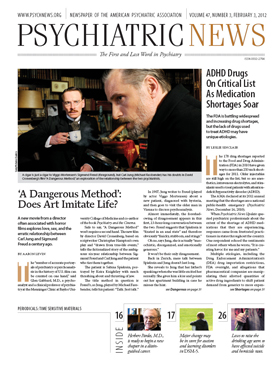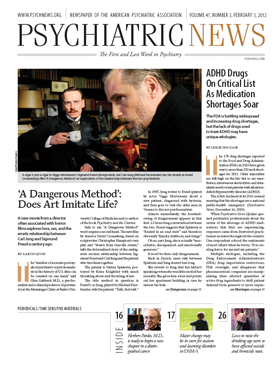Repeated deployments to dangerous war zones are risky enough for military service members, but they also can place serious stress on the families left behind.
Now, pediatricians conducting well-child examinations of children from military families in Massachusetts can more easily spot signs of incipient mental health problems using a toolkit developed by Paula Rauch, M.D., an associate professor of psychiatry at Harvard Medical School and chief of the child psychiatry consultation-liaison service at Massachusetts General Hospital (MGH), and colleagues.
Stresses on family members and troops arise not only when the latter are off in the war zones. Departure and return from overseas are also times of difficult adjustments for spouses, children, siblings, and parents of deploying troops.
The online toolkit is cosponsored by Boston’s Red Sox Foundation and MGH, with support from the Robert P. McCormick Foundation. Help with consultation and referral is provided by the Massachusetts Child Psychiatry Access Project (Psychiatric News, February 4, 2010).
“The backing of the Red Sox and MGH is a great opportunity to use existing trusted relationships to get important information out to military families,” said child psychiatrist Stephen Cozza, M.D., a professor of psychiatry and associate director of the Center for the Study of Traumatic Stress at the Uniformed Services University of the Health Sciences in Bethesda, Md., in an interview. Cozza was not involved with the toolkit project.
Massachusetts differs from many other states in that its military population is largely made up of National Guard members or reservists, rather than regular active-duty troops. They are scattered across the state and thus lack the support systems available to families living on or near bases.
Those families include more than 13,000 children. Most of them manage a parent’s absence well enough but some need help. Such children may often be “invisible,” the only ones in their school with a deployed parent. Teachers may not be aware of that fact or understand the stresses such a child is experiencing. Even their physicians may not know who these children are, unless they are prompted to ask.
No matter where they live, most of these children are seen in well-child care, said Rauch. “So our idea was to make outreach part of regular pediatric care,” she said.
The work began with a trip by the Red Sox after the 2007 World Series to Walter Reed Army Medical Center after the obligatory White House stop. Team officials sought ways to help wounded troops, especially in ways that the Department of Veterans Affairs could not. The VA can provide services only to veterans, not to their families.
Rauch and colleagues adapted the Pediatric Symptom Checklist because it was already familiar to pediatricians, she said. The toolkit has variations for children and adolescents and another list of questions for parents.
In keeping with the baseball theme, the toolkit “covers the bases” by expanding on four questions: “Is anyone in the family in the military? Is anyone showing signs of distress? Does any family member need additional help or support? Is everyone safe at home?”
“There is a sea of goodwill out there, but people don’t know what to do,” Rauch said. “By educating the adults in their lives—parents, teachers, pediatricians— children won’t be left to worry alone. The hope is the disruptions in their lives will be challenges, but not traumas.”

